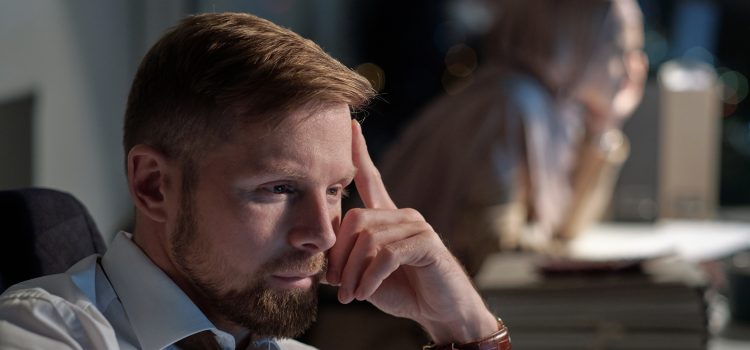
Depression in Men Doesn’t Look Sad
When people think of depression, they imagine tears. Emptiness. Silence. But in men, depression often looks very different — and because of that, it’s easy to miss, ignore, or deny.
Men don’t always get sad.
They get angry.
Disconnected.
Restless.
Numb.
And when it hides behind success, sarcasm, or self-reliance, no one sees it — not even the man himself.
Why Male Depression Looks Different
Culturally, men are taught to be strong, stoic, and invulnerable. Expressions of sadness are often labeled as weakness, so instead of showing pain, many men channel it into action, aggression, or avoidance.
In psychological terms, men tend to experience what’s called “externalizing depression” — turning inner distress into outward behaviors, rather than emotional expression.
This leads to underdiagnosis. Men don’t say “I’m sad.”
They say:
- “I’m just tired.”
- “I don’t care anymore.”
- “Everyone needs to leave me alone.”
- Or they say nothing at all.
What Male Depression Really Looks Like
- Irritability over sadness
- Emotional numbness or lack of motivation
- Overworking or constant busyness
- Excessive use of alcohol, porn, or gaming
- Withdrawal from friends, partner, or children
- Anger outbursts over minor issues
- Feeling bored, blank, or chronically empty
- Thoughts of escape, ending it, or disappearing
These signs are often mistaken for stress, burnout, or “just being a guy.” But they may be symptoms of a deeper emotional shutdown.
Why Men Don’t Talk About It
Men often say:
- “What’s the point of talking?”
- “No one would understand.”
- “I can handle it.”
But underneath, many men feel:
- Ashamed of being vulnerable
- Afraid of being seen as weak
- Unfamiliar with naming what they feel
- Disconnected from their emotional world
That silence creates isolation. And isolation fuels the cycle of depression.
Depression Is Not a Moral Failure — It’s a System Overload
Biologically, depression in men is linked to:
- Low testosterone or high cortisol
- Chronic inflammation and poor sleep
- Unprocessed grief, fear, or shame
- Lack of emotional connection and identity
This isn’t about not being “man enough.” It’s about being human in a system that punishes emotional expression.
What Helps — Beyond Just “Talking About It”
- Name what’s happening. Not “I’m fine.” Try: “I feel blank. I’m tired of pretending. Something’s off.”
- Move your body with intention. Exercise isn’t a fix, but it’s a biochemical reset button.
- Seek connection, not solutions. You don’t need someone to fix you — just someone who sees you.
- Work with professionals who understand men. Therapy doesn’t mean you’re broken. It means you’re ready to stop carrying everything alone.
- Give up the mask. The pressure to “be okay” is heavier than the truth of not being okay.
Final Thoughts
Depression in men often hides behind achievement, anger, or silence. It doesn’t always cry — sometimes it shouts, drinks, scrolls, or shuts down.
If this sounds familiar, know this:
You’re not weak. You’re not alone. And you don’t have to keep pretending you’re fine.
Because real strength isn’t in holding it all in.
It’s in having the courage to let something out.









